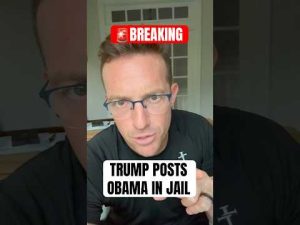In the latest display of political theater, Hunter Biden has once again found himself in the spotlight—not for his financial ventures or past controversies, but for his rather theatrical critique of his own party. Hunter, known for his business acumen as much as his colorful lifestyle choices, is not taking recent events sitting down. Instead, he’s vocalizing his discontent on podcasts, taking aim at those who, in his view, betrayed his father, former President Joe Biden, during and after the last election.
Hunter’s recent dive into public commentary feels more like a subplot from a political soap opera than a calculated move by a savvy political operator. On a podcast with former DNC Chairman Jaime Harrison, Hunter delivered a scathing critique, lamenting what he claims was a lack of loyalty to his father from notable Democratic figures. According to Hunter, this so-called disloyalty was a critical factor behind the Democratic loss in the most recent election, despite the convenient advantage of incumbency.
In an interesting twist, Hunter suggested that the Democratic Party’s decision to replace Joe Biden with Kamala Harris as the nominee was a factor in the election’s outcome. It’s a claim that highlights the tension within the party, considering the several fiery debates and policy disagreements that marked the previous administration’s tumultuous journey. However, one might wonder if Hunter is busy reimagining history in an attempt to mask over the less glamorous parts of the campaign’s past.
Hunter also addressed claims circulating among conservative pundits about President Biden’s cognitive abilities, dismissing them as unfounded. These critiques have repeatedly emerged, fueled by a narrative often pushed by President Biden’s opponents.
All this entertaining chaos adds another layer to the combustible world of politics, highlighting the rifts within the Democratic Party. As Hunter continues to critique his former allies, conservatives everywhere are munching on popcorn, wondering if the Democrats will be able to mend their self-inflicted wounds or if they will continue to provide more unexpected plot twists. Either way, Hunter’s narrative promises to keep the political audience glued for what comes next.







